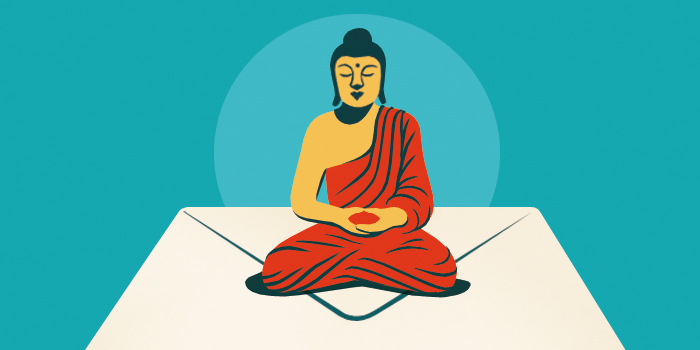Was the Buddha a pessimist who taught that life is suffering?
You may have heard that the Buddha said “Life is suffering.” People are sometimes told that this was spoken in his first sermon, when he introduced the four noble truths. Not surprisingly, some listeners conclude that the Buddha must have been a pessimist.
More correctly, the Buddha said that the first truth he would teach was the truth of dukkha. Dukkha is a Pali word that is sometimes translated as “suffering,” but it is also translated as “sorrowful,” “painful,” “stressful,” or “unable to satisfy”; a more literal translation of the first noble truth might be “life does not satisfy” or “the universe will not provide all you desire.” Pali scholars say that no single English word captures all of its nuances.
Buddhists argue that this is not pessimism but realism. However, accepting that life is unsatisfying by nature runs counter to the cultural value the 21st-century West places on happiness and positive thinking. There’s nothing wrong with happiness; the Buddha himself gave many teachings on cultivating happiness. But if we expect happiness to be the default condition of life, how much more dissatisfied are we when life isn’t being what we think it ought to be? According to Buddhism, we must learn to accept that we will never get everything we desire, and even if we did, it would not truly make us happy. The Buddha taught that genuine happiness must be cultivated from within and does not depend on circumstances or on getting what we want.
The Buddha taught us to live not in expectation but in reality. His teachings are a prescription for finding the causes of dukkha so that we know where the dissatisfaction, restlessness, and unhappiness comes from; only then can we liberate ourselves from them. Through practice, we create an inner tranquility that is constant through good fortune and bad, a tranquility that the Buddha states is the greatest happiness.

Tricycle is more than a magazine
Gain access to the best in sprititual film, our growing collection of e-books, and monthly talks, plus our 25-year archive
Subscribe now